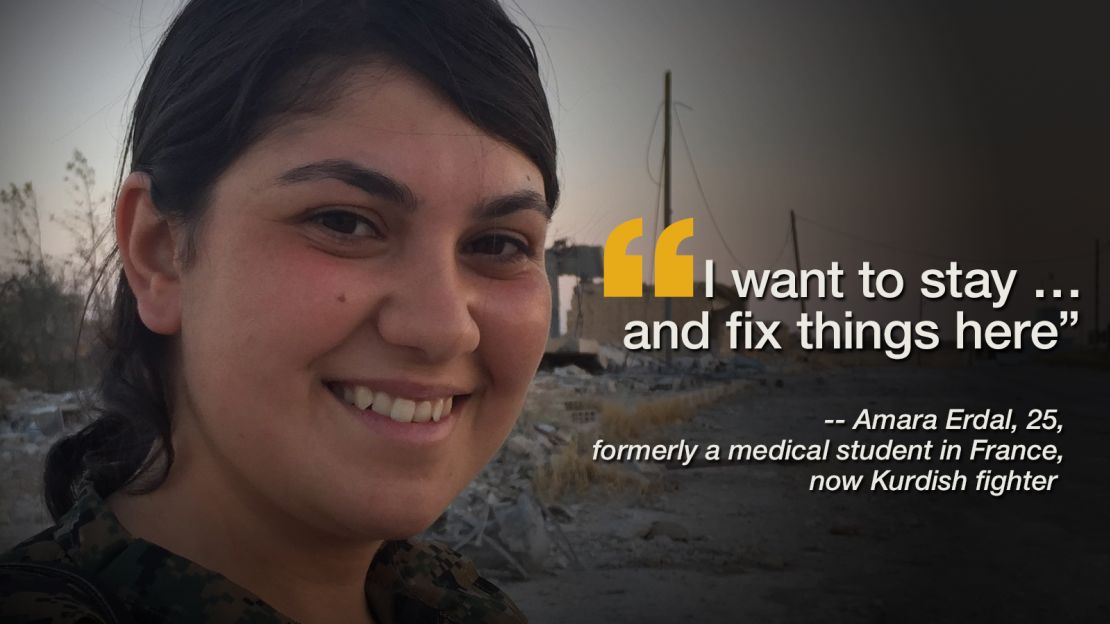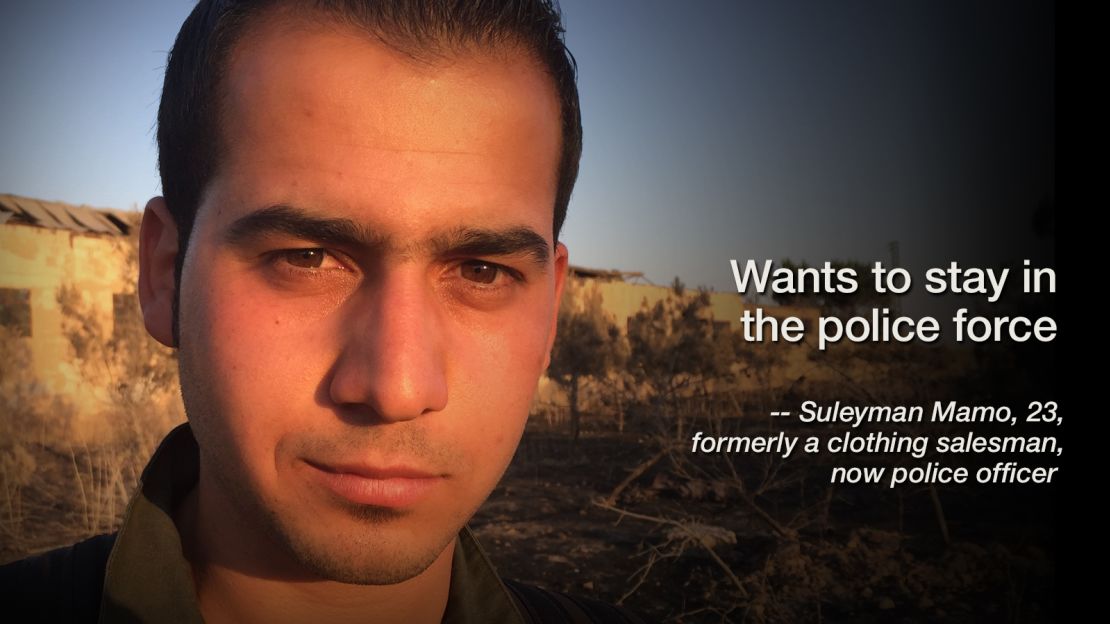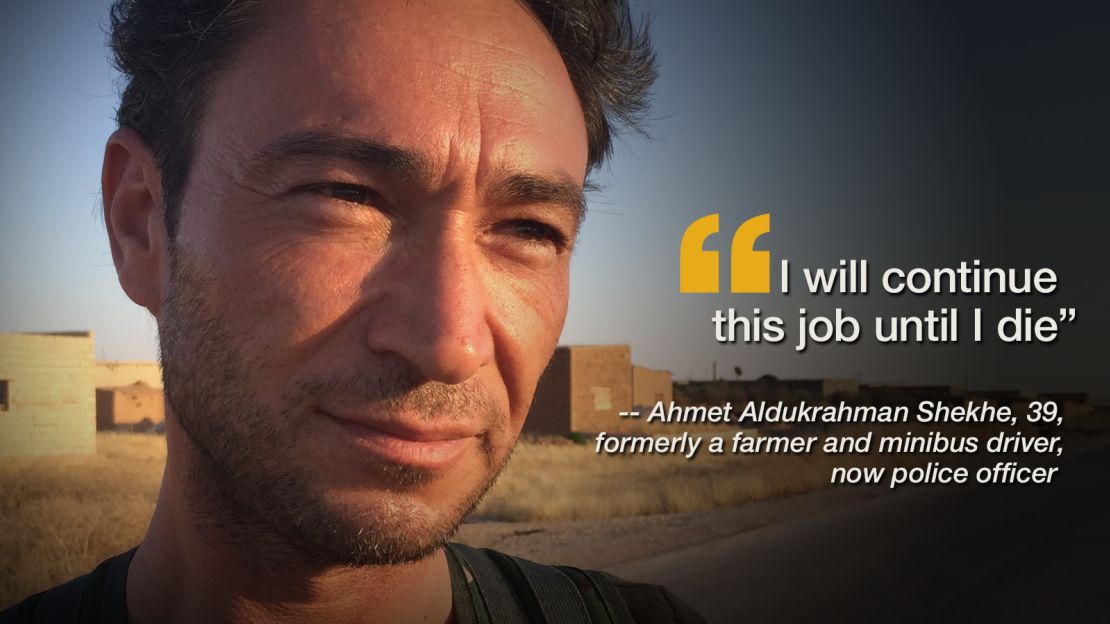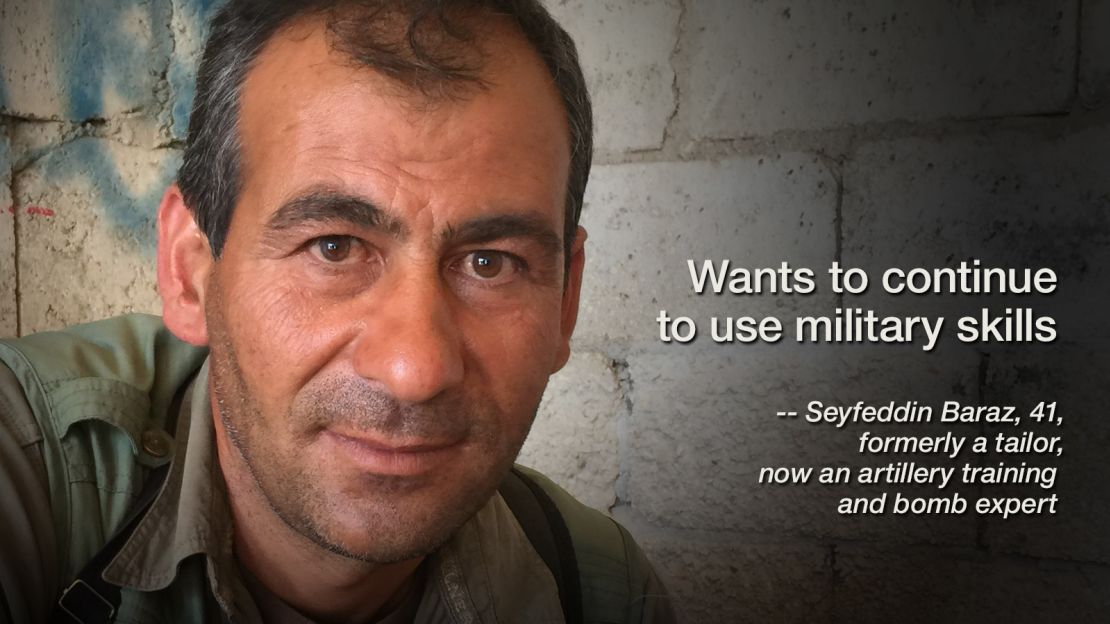The Kurdish fighting force known as the YPG has been battling the advance of ISIS and, aided by airstrikes from the U.S.-led coalition, has succeeded in taking back some territory.
But not every member of the YPG is a career soldier. CNN spoke to some of the new recruits about their lives before they joined the cause, and what they left behind.
Amara Erdal, 25

Born and raised in France, Amara Erdal was studying to be a doctor. She went to Syria without telling her parents and when she called to say where she was, her mother burst into tears.
Now, though, she says, they support her for what she is doing to defend their Kurdish homeland.
Erdal joined the YPJ, the women’s wing of the Kurdish force, three months ago in the hopes of rebuilding Rojava – the Kurdish name for northeastern Syria. “I don’t want to return to France, I want to stay in Rojava and fix things here,” she says.
Suleyman Mamo, 23

Suleyman Mamo has a blue crystal dolphin good luck charm hanging off of the edge of his AK-47. It was given to him by a girl, he says shyly.
Mamo is now a member of the Kurdish police force. Before joining, he worked in a store in Amuda selling men’s and women’s clothing. Once the war is over, Mamo says he wants to stay in the police force.
Ahmet Aldukrahman Shekhe, 39

On long stretches of road, Ahmet Aldukrahman Shekhe listens to Lebanese singer Fairouz. He used to be a farmer helping his family grow wheat and cotton. And for a while, he drove a minibus ferrying passengers between Damascus and Aleppo.
Now, he has found his calling as a member of the Kurdish police force, or Asayish. “I will continue this job until I die,” he says.
Seyfeddin Barazi, 41

Seyfeddin Barazi worked as a tailor making men’s and women’s clothing. He taught sewing and had put together some fashion shows. But even before the uprising in Syria began, he was bored with tailoring. When work started to slow down, he joined the YPG.
He was always interested in weaponry and he decided to focus on artillery. He now instructs YPG fighters on how to fire mortars and Katyusha rockets. He has become a de facto expert when it comes to the handling and dismantling of bomb-making materials left by ISIS. When the war ends, he wants to continue to use his newly developed skill set.
State Department: ISIS breaking new ground as leader in terror groups
